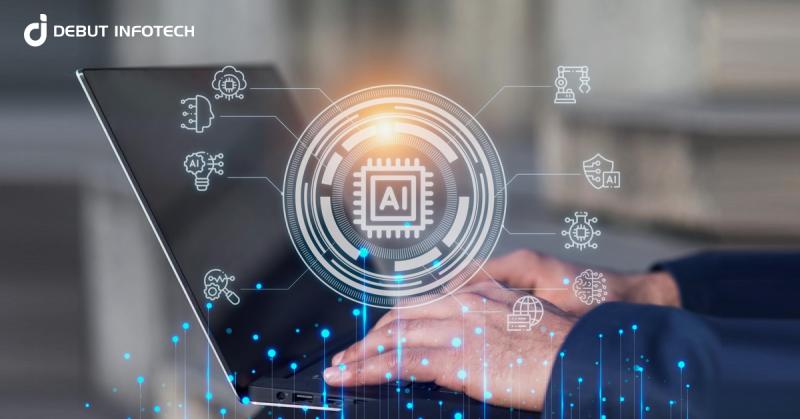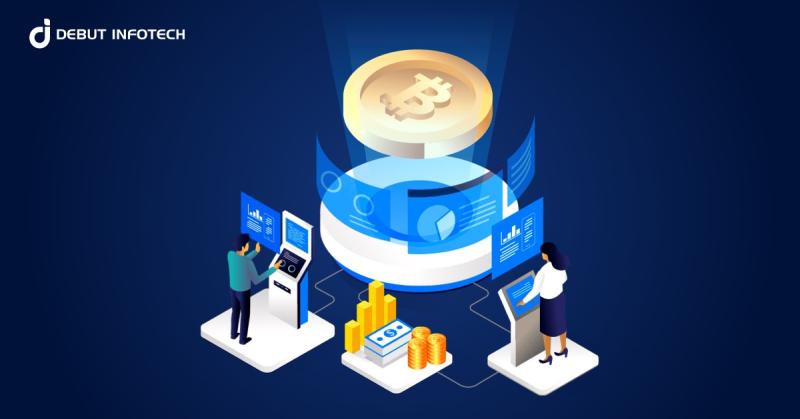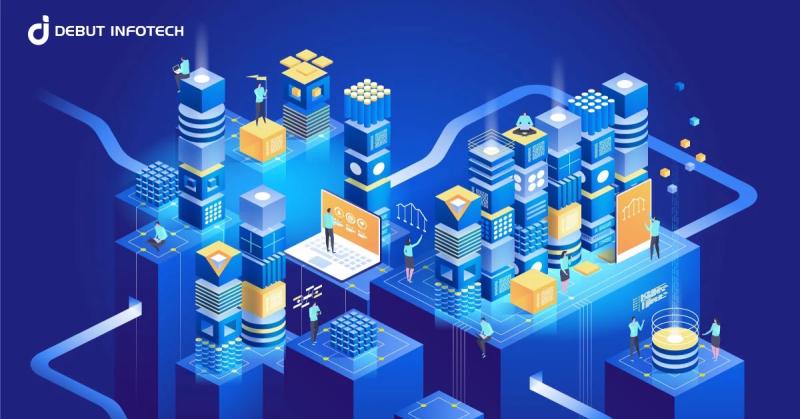AI Trends 2024: Revolutionizing Businesses Across Industries
The landscape of business is undergoing a seismic shift. Artificial intelligence (AI) is no longer a theoretical concept confined to research labs; it's a potent force actively transforming industries and reshaping competitive landscapes. In 2024, AI is projected to contribute up to $5.2 trillion to the global economy, highlighting its transformative potential as per reports by McKinsey & Company.
Forward-thinking businesses are actively integrating AI into their operations, unlocking a wealth of opportunities for innovation, efficiency, and growth. This blog equips business leaders with the knowledge and insights needed to capitalize on the transformative power of AI.
We'll explore real-world applications across various industries, providing a roadmap for successful AI adoption. By understanding these cutting-edge trends, businesses can gain a competitive edge and navigate the exciting future of AI with confidence.
Top 10 AI Trends in 2024
Generative AI
Generative AI is a powerful technology that can create realistic and creative content formats like images, music, and even code. This opens doors to exciting possibilities across various industries:
Marketing & Advertising: AI can generate personalized marketing materials, product mockups, and targeted ad campaigns, fostering a more engaging customer experience.
Product Development: AI-powered design tools can help generate new product ideas and explore various design iterations quickly and efficiently.
Media & Entertainment: Generative AI can create realistic special effects for movies and games, personalize music recommendations, and even generate original content formats like scripts or poems.
However, ethical considerations surround the potential misuse of this technology, such as creating deepfakes for malicious purposes. Implementing responsible AI practices and fostering human oversight are crucial as generative AI continues to evolve.
Explainable AI (XAI)
With AI decisions becoming increasingly complex, Explainable AI (XAI) tools are critical for understanding how AI models arrive at their conclusions. This transparency builds trust with human users and ensures responsible AI development:
Improved Decision Making: By understanding the reasoning behind an AI model's recommendations, businesses can make more informed decisions based on transparent data analysis.
Reduced Bias: XAI tools can help identify and mitigate potential biases within AI datasets and algorithms, promoting fairer and more ethical AI applications.
Regulatory Compliance: As AI regulations evolve, XAI tools will be essential for demonstrating compliance and ensuring AI models operate within ethical boundaries.
Multimodal AI
Multimodal AI enables AI systems to process information from various sources like text, images, and audio, offering a more comprehensive understanding of the real world. This allows for more nuanced AI applications:
Enhanced Customer Service: Chatbots powered by multimodal AI can understand and respond to customer queries that involve text, images, or even voice recordings, providing a more natural and efficient customer support experience.
Improved Robotics: Robots equipped with multimodal AI can navigate complex environments, interact with objects, and understand human instructions more effectively, leading to wider applications in manufacturing, logistics, and healthcare.
Advanced Market Research: AI can analyze social media posts, customer reviews, and video content to gain a deeper understanding of consumer sentiment and market trends.
AI-powered Customer Service
Customer service is undergoing a revolution with AI chatbot development and virtual assistants powered by natural language processing (NLP). These intelligent systems offer several advantages:
24/7 Availability: AI-powered support can handle customer inquiries around the clock, improving customer satisfaction and reducing wait times.
Personalized Interactions: NLP enables chatbots to understand and respond to individual customer needs, providing a more personalized and efficient support experience.
Increased Efficiency: AI can automate routine inquiries and tasks, freeing human customer service representatives to handle more complex issues.
However, it's crucial to ensure AI-powered customer service complements, not replaces, human interaction. Businesses should strive to create a seamless blend of AI and human support to offer the best possible customer experience.
AI-driven Cybersecurity
The ever-evolving threat landscape demands robust cybersecurity solutions. AI is proving to be a valuable tool in this fight:
Real-time Threat Detection: AI algorithms can analyze network traffic patterns to identify anomalies and suspicious activities indicative of cyberattacks in real-time, enabling faster response times.
Enhanced Security Automation: AI can automate repetitive tasks like security log analysis and vulnerability scanning, freeing up security personnel to focus on higher-level threats.
Predictive Security: AI can analyze historical data to predict potential security breaches and proactively take steps to mitigate risks.
However, AI-powered cybersecurity systems are not foolproof. Adversaries may develop techniques to evade AI detection. Continuous improvement and adaptation are crucial for maintaining a strong cybersecurity posture.
Hyper Automation with AI
Hyper Automation refers to the extensive use of automation technologies like robotic process automation (RPA) and AI to streamline business processes. AI plays a critical role in this strategy:
Intelligent Process Automation: AI can take RPA a step further by automating tasks requiring decision-making capabilities, leading to a more intelligent and efficient automation ecosystem.
Improved Workflows: AI can analyze process data to identify bottlenecks and inefficiencies, enabling businesses to optimize workflows and improve overall operational efficiency.
Enhanced Employee Productivity: By automating repetitive tasks, AI frees up valuable employee time for more strategic activities and innovation-driven work.
Responsible AI
As AI becomes more pervasive, ethical considerations gain paramount importance. Responsible AI ensures that AI is developed and deployed in a way that is fair, transparent, and accountable:
Mitigating Bias: Addressing bias in AI datasets and algorithms is crucial to ensure fair and unbiased AI decision-making.
Data Privacy: Protecting user privacy and ensuring responsible data collection and usage practices are essential in building trust with consumers.
AI Explainability: As discussed earlier, XAI tools are vital for understanding how AI models arrive at their conclusions and promoting responsible AI development.
Edge AI
Edge computing refers to processing data closer to where it's generated, at the network's edge, rather than relying solely on centralized cloud computing. AI is increasingly being integrated with edge computing:
Reduced Latency: Processing data at the edge minimizes latency issues, enabling faster and more real-time decision-making for applications like autonomous vehicles or industrial automation.
Improved Security: Edge AI can enhance data security by minimizing the amount of sensitive data transmitted to the cloud, reducing the attack surface for potential breaches.
Offline Functionality: Edge AI systems can function even without a constant internet connection, making them ideal for applications in remote or resource-constrained environments.
AI for Sustainability
AI can be a powerful tool in addressing global sustainability challenges:
Energy Optimization: AI can analyze energy consumption patterns and optimize energy usage in buildings, factories, and power grids, leading to a more sustainable energy future.
Environmental Monitoring: AI can be used to analyze environmental data like satellite imagery and sensor readings to monitor climate change, deforestation, and pollution levels, enabling proactive environmental management.
Supply Chain Optimization: AI can optimize supply chains, reducing waste and emissions by ensuring efficient resource allocation and logistics management.
Democratization of AI
Traditionally, AI development required significant expertise and resources. However, a trend towards democratization of AI is making this technology more accessible to businesses of all sizes:
Cloud-based AI Services: Cloud platforms offer pre-built AI tools and services that businesses can leverage without investing in expensive hardware or in-house AI development teams.
Low-code/No-code AI Tools: These user-friendly tools allow businesses to build basic AI applications without extensive coding knowledge, further lowering the barrier to entry for AI adoption.
Stay Ahead of the Curve in AI Innovation with Debut Infotech
As we move through a crucial year in artificial intelligence, understanding and adapting to emerging trends is key to maximizing potential and minimizing risks while responsibly scaling AI adoption.
Debut Infotech is here to guide you as a reliable tech partner, helping you navigate the complexities of AI trends effectively and achieve sustainable growth in today’s tech-driven era. As a leading AI development company, our team of over 100 AI developers has delivered more than 500 successful projects for many respected clients.
With a solid track record in providing advanced AI development services across various sectors, we help businesses experience transformative changes and reach new heights. Get in touch with us to capitalize on the full potential of AI trends and turn your vision into reality.
FAQs
What are the current AI trends reshaping industries?
The current trends in AI encompass a broad range of technologies, including AutoML, Multi-modal AI, Explainable AI, Computer Vision, Neural Networks, Digital Twins, and more. These trends are driving sustainable growth for businesses across industries, fundamentally changing how we work, learn, and interact with technology.
What's the future outlook for artificial intelligence?
AI industry trends are playing a pivotal role in revolutionizing businesses today and are poised to facilitate advancements across various sectors in the coming years. From enabling AI-powered chips that could potentially make traveling tokens free to the advent of cashier-less shopping marts, AI holds vast possibilities for the future. If you can imagine it, AI has the potential to make it a reality within just a few years.
How is AI transforming business operations?
AI technology trends are revolutionizing businesses in multiple ways. For example, AI facilitates efficient personnel recruitment without human intervention, automates processes, and enhances customer experiences. Additionally, AI is extensively utilized for quality assurance and software testing. Furthermore, AI security trends bolster cybersecurity efforts, detecting fraud and preventing data breaches.










Comments